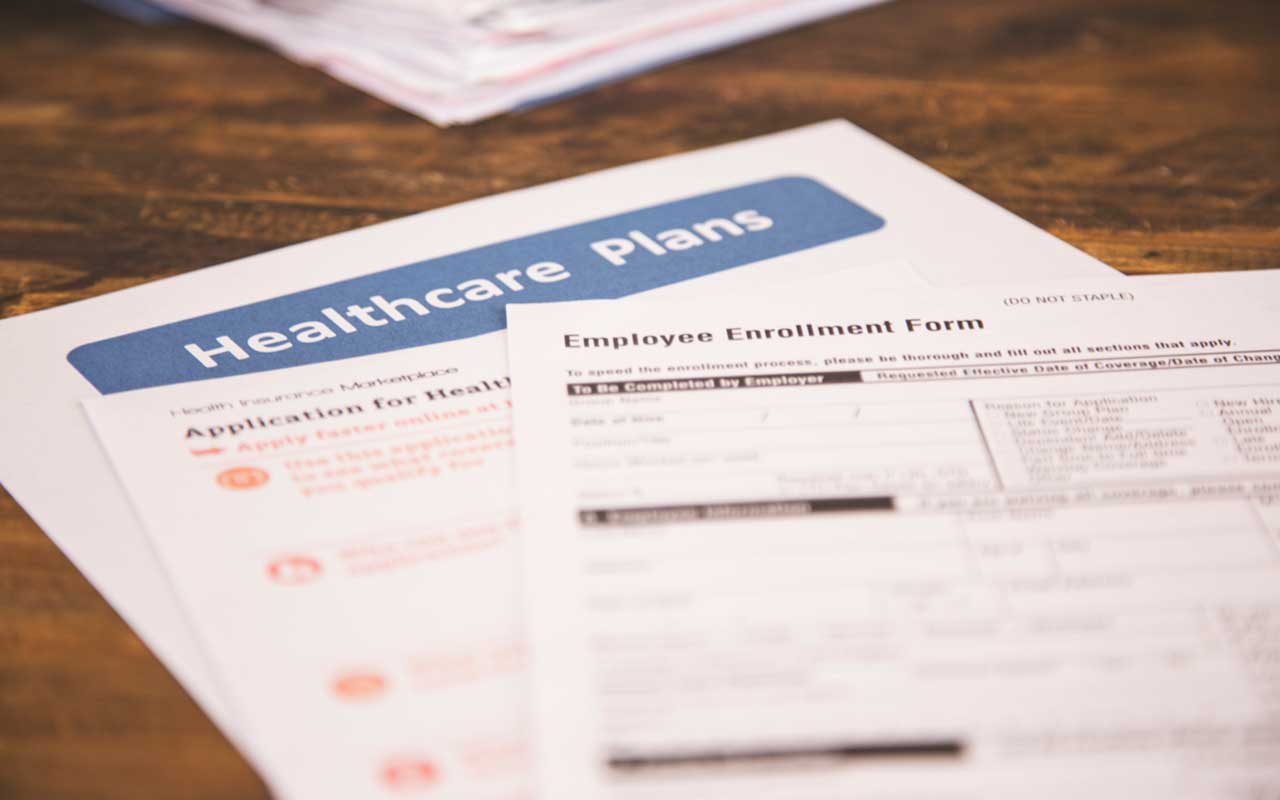IRS Allows Mid-Year Changes to Health Plans, Expands FSAs and More
The added flexibility should help workers deal with unexpected medical and dependent care expenses from the coronavirus outbreak. But not every employee will benefit from the new IRS rules.


Profit and prosper with the best of Kiplinger's advice on investing, taxes, retirement, personal finance and much more. Delivered daily. Enter your email in the box and click Sign Me Up.
You are now subscribed
Your newsletter sign-up was successful
Want to add more newsletters?

Delivered daily
Kiplinger Today
Profit and prosper with the best of Kiplinger's advice on investing, taxes, retirement, personal finance and much more delivered daily. Smart money moves start here.

Sent five days a week
Kiplinger A Step Ahead
Get practical help to make better financial decisions in your everyday life, from spending to savings on top deals.

Delivered daily
Kiplinger Closing Bell
Get today's biggest financial and investing headlines delivered to your inbox every day the U.S. stock market is open.

Sent twice a week
Kiplinger Adviser Intel
Financial pros across the country share best practices and fresh tactics to preserve and grow your wealth.

Delivered weekly
Kiplinger Tax Tips
Trim your federal and state tax bills with practical tax-planning and tax-cutting strategies.

Sent twice a week
Kiplinger Retirement Tips
Your twice-a-week guide to planning and enjoying a financially secure and richly rewarding retirement

Sent bimonthly.
Kiplinger Adviser Angle
Insights for advisers, wealth managers and other financial professionals.

Sent twice a week
Kiplinger Investing Weekly
Your twice-a-week roundup of promising stocks, funds, companies and industries you should consider, ones you should avoid, and why.

Sent weekly for six weeks
Kiplinger Invest for Retirement
Your step-by-step six-part series on how to invest for retirement, from devising a successful strategy to exactly which investments to choose.
You probably never heard of COVID-19 when you picked this year's health insurance policy at work. You couldn't have planned for the coronavirus pandemic when you signed up for a 2020 flexible spending arrangement (FSA), either. But you might not be stuck with the choices you made in 2019 with respect to employer-provided health insurance and FSAs for 2020. That's because the IRS is letting workers make mid-year changes to their health insurance coverage and FSAs. It's also expanding FSA rules concerning carryover and grace periods.
But there's a catch: You can only take advantage of the new rules if your employer modifies its benefit plans. If your company doesn't want to make the necessary changes, then you're out of luck. But assuming your bosses are on board, here's a rundown of the mid-year health insurance changes allowed, the enhanced rules for FSAs, and even some adjustments that help people with health savings accounts (HSAs). Hopefully, the added flexibility will help if you're dealing with unexpected medical and dependent care expenses because of the coronavirus outbreak.

Mid-Year Changes to Health Insurance Plans
Normally, you can't change your employer-provided health insurance coverage during the year unless there's a qualifying "life event," such as a marriage, divorce, birth or adoption of a child, death of a covered family member, child turning 26, move to a new home, or change of employment status within the family. However, for many workers, the health insurance they signed up for last year isn't sufficient to handle unanticipated medical expenses linked to the coronavirus.
To help alleviate the problem, the IRS is allowing employers to modify their health benefit plans so that workers can make certain mid-year changes to their 2020 health insurance choices. Changes are only allowed on a prospective basis. Specifically, an employer, in its discretion, can amend its health plan to allow each employee to:
- Sign-up for health insurance now if he or she initially declined coverage;
- Sign-up for a different health plan (including changing enrollment from self-only coverage to family coverage); or
- Revoke existing coverage if the employee attests in writing that he or she is enrolled, or immediately will enroll, in another health plan not sponsored by the employer.
An employer is not required to allow all (or any) of these changes. It can pick and choose which of these new elections to offer. An employer can also limit health insurance changes to those that would increase or improve a worker's coverage (e.g., by electing to switch from self-only coverage to family coverage, or from a low-option plan covering in-network expenses only to a high-option plan covering expenses in or out of network).

Mid-Year Changes to FSAs
Workers can also make mid-year changes to their health and dependent FSAs – again, if their employer modifies its FSA plan. Thanks to the IRS's blessing, employers can allow workers to:
- Sign-up or revoke an election to contribute to a health or dependent care FSA for 2020; or
- Increase or decrease the amount contributed in 2020 to a health or dependent care FSA.
As with mid-year changes to health insurance plans, employers can allow one, both or no changes. They can also limit mid-year elections based on FSA amounts that are already reimbursed.
Changes to FSAs are only permitted on a prospective basis, though. So, for example, you can't get back a contribution you already made.

Larger FSA Carryover Amount
FSAs generally operate under a "use-it-or-lose-it" rule: Use money contributed during the year to pay for qualifying expenses incurred that year or forfeit the unused funds. However, for health care FSAs, an employer can bend that rule a bit and allow workers to carryover up to $500 of unused contributions to the next year.
Employers now have the option of upping the carryover amount for 2020 FSAs to $550. This doesn't apply to amounts carried over from 2019 to 2020, though.
In addition, the carryover amount will be adjusted for inflation going forward.

Longer FSA Grace Period
Another way an employer can tweak the "use-it-or-lose-it" rule is by providing a grace period of up to 2½ months to incur health or dependent care expenses for the previous year. For example, if an employee had unused FSA funds at the end of 2019, the employer could allow the worker to use the money to pay for qualifying health or dependent care expenses incurred from January 1 to March 15, 2020. For health FSAs, an employer can adopt a carryover or a grace period (or neither), but it can't adopt both features.
For 2020, the IRS is letting employers extend the grace period to the end of the year. Again, it's optional, though. So, for example, if an employer sponsored a 2019 FSA with a grace period ending on March 15, 2020, it could amend its FSA plan to let workers to apply unused 2019 FSA funds to pay for qualifying expenses incurred through December 31, 2020. However, health FSA amounts can only be used for medical care expenses, and dependent care FSA amounts can only be used for dependent care expenses.
The extension of time for incurring claims is available to both FSAs that have a grace period and FSAs that offer a carryover.
Note, however, that a worker who had unused amounts from a 2019 health FSA and who is allowed an extension to the end of 2020 to incur expenses generally will not be allowed to contribute to a health savings account (HSA) during the extended period.

Coronavirus Testing and Treatment's Impact on HSAs
On March 11, the IRS announced that anyone with a high-deductible health plan (HDHP) covering coronavirus testing and treatment before plan deductibles have been met can still contribute to a health savings account (HSA) and deduct those contributions on their 2020 tax return. (For details, see Free Coronavirus Testing and Treatment Won't Affect HSA Deduction.) The IRS has now clarified that this applies to coverage of testing and treatment expenses for all of 2020 (not just since March 11).
The IRS also expanded the list of coronavirus testing and treatment that an HDHP can cover without a deductible or with a deductible below the minimum annual deductible otherwise required. First, it added the panel of diagnostic testing for influenza A & B, norovirus and other coronaviruses, and respiratory syncytial virus (RSV), and any items or services required to be covered with zero cost sharing. It also included telehealth and other remote care services. Therefore, for example, an otherwise eligible person covered by an HDHP who was reimbursed for these tests and services before satisfying the HDHP's required deductible will still be allowed to contribute to an HSA in 2020.
Profit and prosper with the best of Kiplinger's advice on investing, taxes, retirement, personal finance and much more. Delivered daily. Enter your email in the box and click Sign Me Up.
Rocky Mengle was a Senior Tax Editor for Kiplinger from October 2018 to January 2023 with more than 20 years of experience covering federal and state tax developments. Before coming to Kiplinger, Rocky worked for Wolters Kluwer Tax & Accounting, and Kleinrock Publishing, where he provided breaking news and guidance for CPAs, tax attorneys, and other tax professionals. He has also been quoted as an expert by USA Today, Forbes, U.S. News & World Report, Reuters, Accounting Today, and other media outlets. Rocky holds a law degree from the University of Connecticut and a B.A. in History from Salisbury University.
-
 Dow Adds 1,206 Points to Top 50,000: Stock Market Today
Dow Adds 1,206 Points to Top 50,000: Stock Market TodayThe S&P 500 and Nasdaq also had strong finishes to a volatile week, with beaten-down tech stocks outperforming.
-
 Ask the Tax Editor: Federal Income Tax Deductions
Ask the Tax Editor: Federal Income Tax DeductionsAsk the Editor In this week's Ask the Editor Q&A, Joy Taylor answers questions on federal income tax deductions
-
 States With No-Fault Car Insurance Laws (and How No-Fault Car Insurance Works)
States With No-Fault Car Insurance Laws (and How No-Fault Car Insurance Works)A breakdown of the confusing rules around no-fault car insurance in every state where it exists.
-
 States That Tax Social Security Benefits in 2026
States That Tax Social Security Benefits in 2026Retirement Tax Not all retirees who live in states that tax Social Security benefits have to pay state income taxes. Will your benefits be taxed?
-
 What to Do With Your Tax Refund: 6 Ways to Bring Growth
What to Do With Your Tax Refund: 6 Ways to Bring GrowthUse your 2024 tax refund to boost short-term or long-term financial goals by putting it in one of these six places.
-
 What Does Medicare Not Cover? Eight Things You Should Know
What Does Medicare Not Cover? Eight Things You Should KnowMedicare Part A and Part B leave gaps in your healthcare coverage. But Medicare Advantage has problems, too.
-
 15 Reasons You'll Regret an RV in Retirement
15 Reasons You'll Regret an RV in RetirementMaking Your Money Last Here's why you might regret an RV in retirement. RV-savvy retirees talk about the downsides of spending retirement in a motorhome, travel trailer, fifth wheel, or other recreational vehicle.
-
 The Six Best Places to Retire in New England
The Six Best Places to Retire in New Englandplaces to live Thinking about a move to New England for retirement? Here are the best places to land for quality of life, affordability and other criteria.
-
 The 10 Cheapest Countries to Visit
The 10 Cheapest Countries to VisitWe find the 10 cheapest countries to visit around the world. Forget inflation and set your sights on your next vacation.
-
 15 Ways to Prepare Your Home for Winter
15 Ways to Prepare Your Home for Winterhome There are many ways to prepare your home for winter, which will help keep you safe and warm and save on housing and utility costs.
-
 Six Steps to Get Lower Car Insurance Rates
Six Steps to Get Lower Car Insurance Ratesinsurance Shopping around for auto insurance may not be your idea of fun, but comparing prices for a new policy every few years — or even more often — can pay off big.

